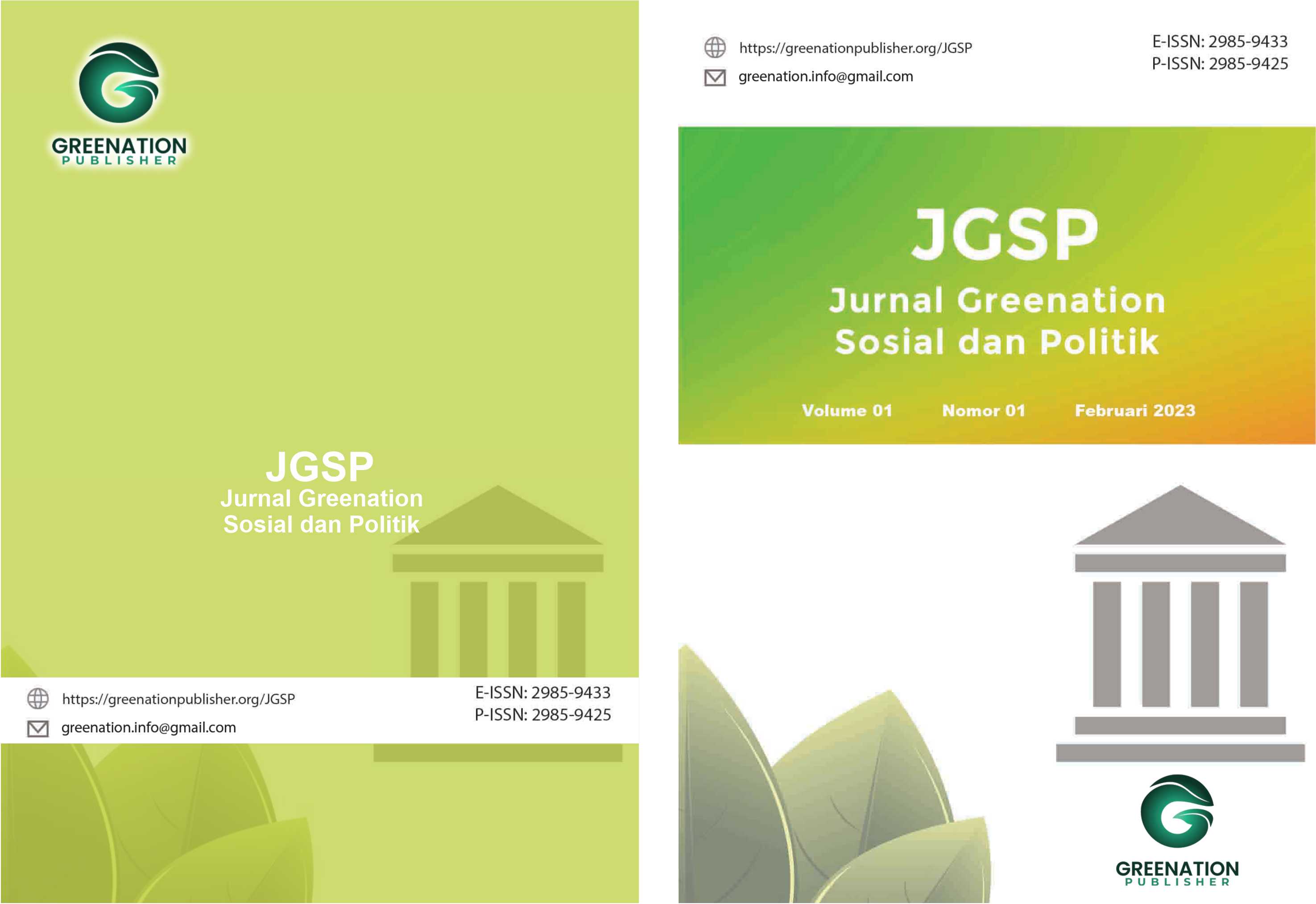Artificial Intelligence in Predictive Policing: A Systematic Literature Review and Its Implications for Indonesia
DOI:
https://doi.org/10.38035/jgsp.v3i3.441Keywords:
Artificial Intelligence, Predictive Policing, Criminal Law, Personal Data Protection, Algorithmic DiscriminationAbstract
The use of Artificial Intelligence (AI) in predictive policing is rapidly developing globally as a response to demands for effectiveness and efficiency in law enforcement. Although this technology promises predictive capabilities that can assist the police in identifying potential crimes in the future, its implementation raises complex legal and ethical issues, especially in the context of a rule-of-law country like Indonesia. This article presents a systematic review of academic literature related to AI in predictive policing over recent years sourced from Scopus, Web of Science, and Google Scholar. The study results indicate that although predictive policing has the potential to reduce crime rates, this technology is fraught with risks of algorithmic discrimination, data bias, privacy violations, and unclear legal accountability. A juridical analysis of existing regulations in Indonesia, such as Law No. 27 of 2022 on Personal Data Protection and the Electronic Information and Transactions Law (UU ITE), shows the absence of legal norms that specifically regulate the application of AI in the context of criminal law. Furthermore, the use of algorithmic prediction results as a basis for legal action potentially contradicts fundamental principles in criminal procedural law, such as the presumption of innocence and the right to personal data protection. This study recommends the urgency of establishing a national legal framework capable of ensuring the ethical, fair, and accountable application of AI technology in law enforcement sectors. Adaptive and human rights-based regulations are necessary so that AI can be used responsibly without sacrificing the values of justice and democracy.
References
Alikhademi, K. D. (2022). A review of predictive policing from the perspective of fairness. Artificial Intelligence and Law, 1-17.
Andriyani, W. W. (2025). When Data Is Everywhere. Banjarnegara: PT. Penerbit Qriset Indonesia.
Berk, R. A. (2021). Artificial intelligence, predictive policing, and risk assessment for law enforcement. Annual Review of Criminology, 4(1), 209-237.
Hartanto, D. R. (2024). Legalitas dan Etika Penggunaan Artificial Intelligence Perspektif Hukum Progresif dan Tinjauan Hukum Internasional. Prosiding Seminar Nasional Wijayakusuma National Conference, 5(1), 127-137.
Husna, S. K. (2023). Pancasila dan Hubungannya dengan Hak Asasi Manusia di Indonesia. Civic Education: Media Kajian Pancasila dan Kewarganegaraan, 7(2), 104-112.
Komarudin, D. C. (2024). Dinamika Kebijakan Publik dan Inovasi Kecerdasan Buatan di Indonesia Tahun 2020-2024. Arus Jurnal Sosial dan Humaniora, 4(3), 1793-1803.
Kushariyadi, K. A. (2024). Artificial Intelligence: Dinamika Perkembangan AI Beserta Penerapannya. Jambi: PT. Sonpedia Publishing Indonesia.
Laksito, J. P. (2024). Harmonizing Data Privacy Frameworks in Artificial Intelligence: Comparative Insights from Asia and Europe. Perkara: Jurnal Ilmu Hukum dan Politik, 2(4), 579-588.
Lee, Y. B. (2024). The effectiveness of big data-driven predictive policing: systematic review. Justice Evaluation Journal, 7(2), 127-160.
Muhammad Wali, S. T. (2023). Penerapan & Implementasi Big Data di Berbagai Sektor (Pembangunan Berkelanjutan Era Industri 4.0 dan Society 5.0). Jambi: PT. Sonpedia Publishing Indonesia.
Sandhu, A. &. (2021). The ‘uberization of policing’? How police negotiate and operationalise predictive policing technology. Policing and society, 31(1), 66-81.
Septiawan, R. A. (2024). Pemanfaatan Artificial Intelligence dalam Hukum Acara Pidana: Tinjauan Yuridis dan Dampak Sosial. Perkara: Jurnal Ilmu Hukum dan Politik, 2(4), 640-654.
Setiawan, G. N. (2024). KAJIAN HUKUM TERHADAP PENGGUNAAN TEKNOLOGI ANALISIS SENTIMEN OLEH PIHAK KEPOLISIAN. LEX PRIVATUM, 14(3).
Slobogin, C. (2023). Predictive Policing in the United States. Vanderbilt Law Research Paper(23-01).
Strikwerda, L. (2021). Predictive policing: The risks associated with risk assessment. The Police Journal, 94(3), 422-436.
Sudirwo, S. H. (2025). Artificial Intelligence: Teori, Konsep, dan Implementasi di Berbagai Bidang. Jambi: PT. Sonpedia Publishing Indonesia.
Sulistyawan, A. Y. (2019). Urgensi harmonisasi hukum nasional terhadap perkembangan hukum global akibat globalisasi. Jurnal Hukum Progresif, 7(2), 171-181.
Wahyudi, B. R. (2025). Tantangan Penegakan Hukum terhadap Kejahatan Berbasis Teknologi AI. Innovative: Journal Of Social Science Research, 5(1), 3436-3450.
Windani, C. A. (2023). Strategi dan Tantangan Predictive Policing di Era Big Data bagi Masyarakat Modern. Deviance Jurnal Kriminologi, 7(2), 101-120.
Zakaria, M. G. (2023). AI applications in the criminal justice system: the next logical step or violation of human rights. Journal of Law and Emerging Technologies, 3(2), 233-257.
Downloads
Published
How to Cite
Issue
Section
License
Copyright (c) 2025 Radyan Kunto Wibisono, Joko Setiono, Ilham Prisgunanto

This work is licensed under a Creative Commons Attribution 4.0 International License.
Hak cipta :
Penulis yang mempublikasikan manuskripnya di jurnal ini menyetujui ketentuan berikut:
- Hak cipta pada setiap artikel adalah milik penulis.
- Penulis mengakui bahwa Jurnal Greenation Sosial dan Politik (JGSP) berhak menjadi yang pertama menerbitkan dengan lisensi Creative Commons Attribution 4.0 International (Attribution 4.0 International CC BY 4.0) .
- Penulis dapat mengirimkan artikel secara terpisah, mengatur distribusi non-eksklusif manuskrip yang telah diterbitkan dalam jurnal ini ke versi lain (misalnya, dikirim ke repositori institusi penulis, publikasi ke dalam buku, dll.), dengan mengakui bahwa manuskrip telah diterbitkan pertama kali di JGSP.
























